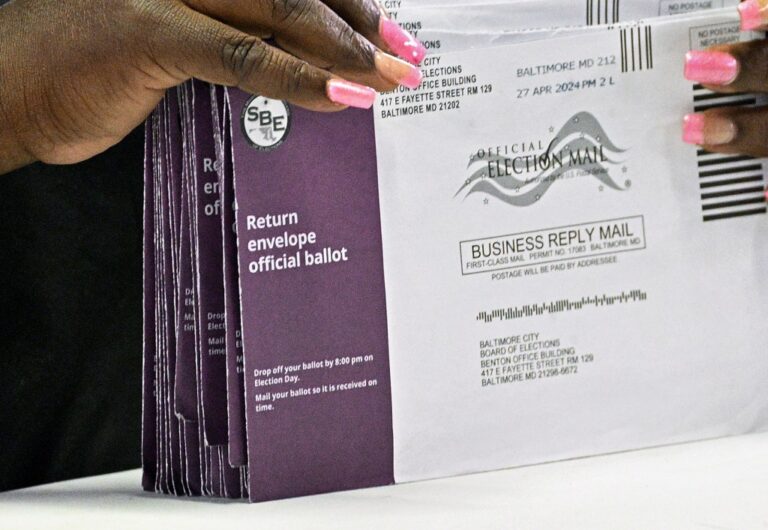A proposal to drastically cut Baltimore City’s property tax rate violates state law and cannot appear on the November ballot, the city’s elections board decided Tuesday.
The rate could have been cut by nearly half, but that’s up to the mayor and city council, Armstead Jones, chairman of the Baltimore City Board of Elections, said in a letter to attorneys representing Renew Baltimore, a coalition that gathered more than 23,000 signatures to put the issue on the ballot.
“I find the petition to be flawed,” Jones wrote in the letter, “because state law provides that the power to set specific property tax rates for counties and Baltimore City must remain with the county or city council.”
The proposal calls for lowering the tax rate from 2.248% to 1.2% over seven years, which could have a major impact on the city’s finances. According to the city’s annual audited financial report, Baltimore City is expected to generate approximately $3.6 billion in revenue in fiscal year 2023. About 30% of that, or about $1 billion, will come from property taxes.
The proposal was reviewed by Assistant Attorney General Thomas Chapman, who serves as counsel to the Commission.
Renew Baltimore, a coalition of real estate developers and companies, said in a statement Tuesday evening that it would seek judicial review of the ruling in city circuit court. The group has proposed capping the local tax rate at a maximum of 1.2 percent.
In his letter, Jones noted that the city charter does not conflict with state law and cited a 1990 case in which the Maryland Court of Appeals (now the Maryland Supreme Court) ruled that Baltimore and Anne Arundel counties could cap future property tax rate increases but could not roll back rates to lower levels. The same court ruled similarly in Talbot County in 1995.
The Greater Baltimore Association of Realtors PAC donated $23,000 to Renew Baltimore, and the Maryland Multihousing Association PAC donated $30,000, according to campaign finance records. The campaign also received $25,000 each from CFG Community Bank and Terra Nova Ventures.
Christopher Meyer, a research analyst at the Maryland Economic Policy Center, said last week that if the tax cuts were implemented, Baltimore would need to attract 325,000 new residents within seven years to maintain current tax revenues. Last month, Mayor Brandon Scott called the proposal “very shortsighted.” Renew Baltimore argued during its campaign that the tax cuts would attract more residents and businesses to the city, expanding the city’s tax base and offsetting a multimillion-dollar hit to city revenue.
Courtney Jenkins, president of the AFL-CIO Baltimore Council, called the proposal “extreme” in a statement.
“This measure is a pipe dream designed to benefit the wealthiest at the expense of the rest of us,” said Jenkins, speaking for the opposition coalition Baltimore City Is Not For Sale. “If implemented, city residents will suffer through fewer firefighters and paramedics, the closure of multiple fire stations, the elimination of street and alley sweeping, and the cancellation of pre- and post-natal maternal and child health care.” [lead exposure] “visit”


